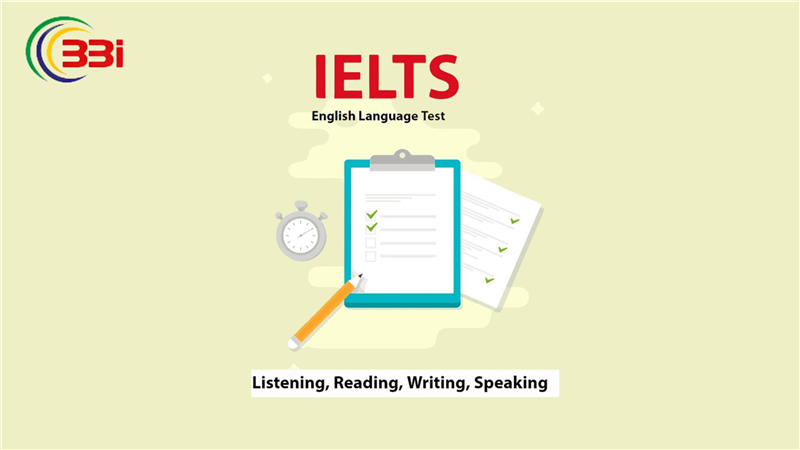
The International English Language Testing System (IELTS) is one of the most widely recognized English proficiency exams worldwide. Whether you are planning to study, work, or migrate to an English-speaking country, achieving a high IELTS score is essential. In this blog, we will break down the structure of the IELTS exam and share expert preparation tips to help you succeed.
What is the IELTS Exam?
IELTS is designed to assess a candidate's ability to communicate effectively in English across four key skills: Listening, Reading, Writing, and Speaking. The exam is available in two versions:
- IELTS Academic: For students seeking admission to universities and other educational institutions.
- IELTS General Training: For individuals migrating to English-speaking countries or seeking work opportunities.
Both versions assess the same four language skills but with different content suited to academic or general purposes.
IELTS Exam Structure
The IELTS test consists of four sections, each designed to evaluate different aspects of English proficiency:
- Listening (30 minutes)
- The Listening section consists of four recordings with 40 questions in total.
- The recordings include conversations, monologues, and discussions.
- Candidates answer a variety of question types such as multiple choice, matching, and sentence completion.
- Each question is worth one mark.
- Reading (60 minutes)
- The Reading section varies depending on the test type:
- Academic: Three long texts taken from books, journals, and newspapers.
- General Training: A mix of everyday reading materials such as notices, advertisements, and newspapers.
- There are 40 questions, including true/false, multiple choice, and sentence completion.
- Writing (60 minutes)
- The Writing section includes two tasks:
- Task 1:
- Academic: Describe a graph, chart, table, or diagram in at least 150 words.
- General Training: Write a letter (formal, semi-formal, or informal).
- Task 2: Write an essay of at least 250 words, presenting an argument or discussion.
- Grammar, coherence, and vocabulary play a crucial role in scoring.
- Speaking (11-14 minutes)
- The Speaking section is a face-to-face interview with an examiner and includes three parts:
- Part 1: Introduction and general questions about familiar topics (4-5 minutes).
- Part 2: Cue card topic where the candidate speaks for two minutes.
- Part 3: Discussion related to the Part 2 topic (4-5 minutes).
- The Speaking test assesses pronunciation, fluency, grammar, and lexical resource.
IELTS Scoring System
IELTS is scored on a 9-band scale, with each section receiving a score from 0 to 9. The final score is the average of all four sections. Here’s how the bands are categorized:
- 9: Expert User
- 8: Very Good User
- 7: Good User
- 6: Competent User
- 5: Modest User
- 4: Limited User
- 3 and below: Extremely Limited User
Most universities and immigration authorities require a minimum band score of 6.0-7.5.
Effective Preparation Tips for the IELTS Exam
- Improve Your Listening Skills
- Listen to English podcasts, news channels, and audiobooks regularly.
- Practice IELTS listening sample tests to get familiar with different accents.
- Take notes while listening and focus on keywords.
- Avoid distractions and try to understand the context of conversations.
- Enhance Your Reading Comprehension
- Read a variety of texts such as newspapers, journals, and blogs.
- Skim and scan texts to find answers quickly.
- Practice answering different question types like matching headings and true/false questions.
- Focus on synonyms and paraphrasing to recognize answer variations.
- Strengthen Your Writing Skills
- Learn to structure essays and letters correctly.
- Practice writing under timed conditions to improve speed and coherence.
- Use diverse vocabulary and avoid repeating words.
- Get feedback on your writing to identify areas for improvement.
- Develop Confidence in Speaking
- Speak English daily with friends, family, or language partners.
- Record yourself and analyze pronunciation, fluency, and grammar.
- Expand your vocabulary and practice answering different IELTS Speaking questions.
- Avoid memorized answers and focus on natural, structured responses.
Common Mistakes to Avoid in IELTS
- Not following instructions: Read questions carefully before answering.
- Poor time management: Practice completing each section within the allocated time.
- Lack of structure in writing: Use clear paragraphs and proper formatting.
- Speaking too fast or too slow: Maintain a steady pace and articulate clearly.
- Overlooking spelling and grammar mistakes: Proofread your answers before submission.
Conclusion
Preparing for the IELTS exam requires dedication, practice, and the right strategies. By understanding the structure of the test and following effective preparation techniques, you can improve your chances of achieving your desired score. Start your IELTS journey with Brain Bench Institute and get expert guidance to excel in your exam.
Are you ready to ace the IELTS? Contact Brain Bench Institute today for professional coaching and study resources!